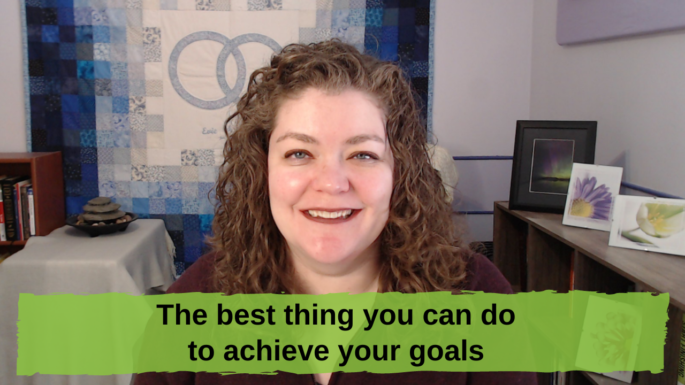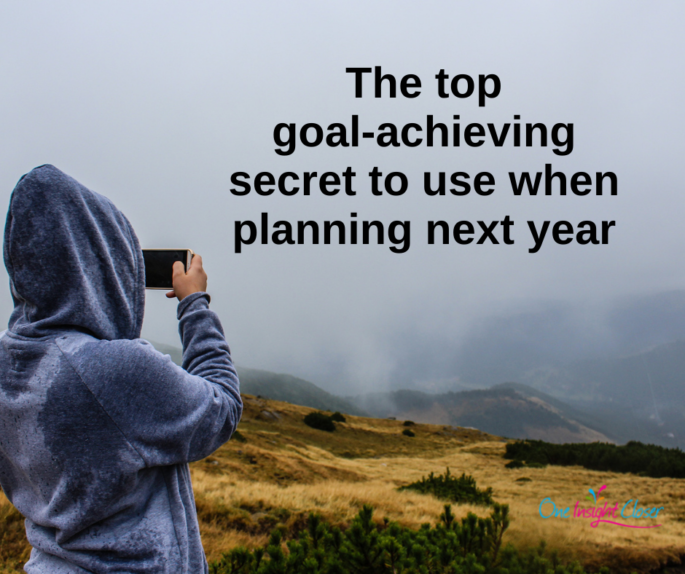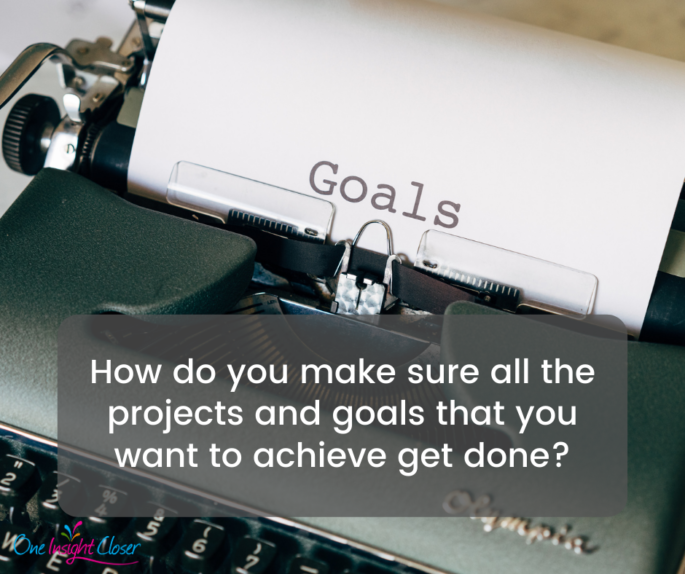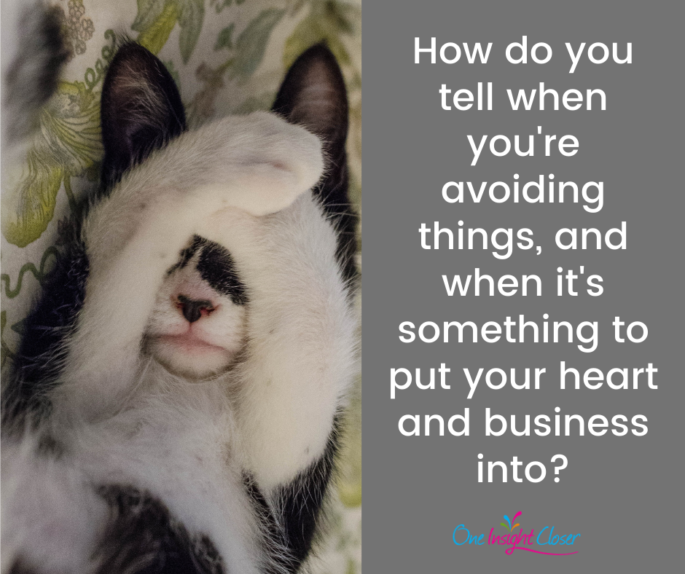Last week I shared details of the pattern of avoiding something with an exciting new project.
It can sidetrack you from doing the work in your business that you need to be doing.
This week I said I’d share how to recognize this pattern.
Sidenote: a project can be almost anything you do in your business that is multiple steps. It might be a marketing plan, program, class, or any number of things.
So, how do you tell when it’s a project or idea that allows you to avoid other things, and when it’s something that you really should be putting your heart and business into?
It can be difficult to differentiate because it can feel the same at the beginning of both types of projects.
One question to ask yourself is, “Why do you want to do this new project/idea?”
One answer to look more into is, “I want it to be easier” (your it might be any number of things).
Sometimes making things easier is a legitimate reason.
You might be adding a needed system to your business to make it run smoother, or you recognize you’re spending more time and energy on something than you need to be.
Sometimes making things easier is legitimate, but isn’t actually a priority.
Moving your email marketing system from your current system to a more expensive and robust system might be something you’ll need to do when you get to a certain point. Still, if you’re not going to be using even half of the features, it’s probably best to wait a bit.
Other times making things easier is a way of avoiding something in your business.
If things are falling through the cracks and lots of important tasks don’t get completed, you can decide you’ll only focus on that one big project for a while. However, without the skill of knowing how to keep track of the things you want to accomplish in your business (this is a skill, most of us aren’t born knowing how to do these things), you’ll feel even farther behind after the project is over and you still have all that other stuff to do.
This is the pattern for most answers to “Why do you want to do this new project/idea?”
Some of the reasons are legitimate, some are legitimate but not a priority, and other reasons allow you to avoid things.
At one pivotal point in my business, I realized that I was hopping from one great idea to another to avoid learning essential business skills by telling myself that this new thing would quickly bring in money. It never did.
I needed income, and it felt like nothing was working.
I did what I tell my clients to do; I took a step back and evaluated what worked and what hadn’t worked.
The good news was some things worked that I didn’t realize.
The bad news was that skill that I was avoiding was holding me back in almost everything else.
I created a new project for myself that made learning and using that skill a priority. I knew it wasn’t going to make me immediate money, but not learning and being comfortable with that skill was costing me a lot (and later, I invested in a program build on that knowledge).
I still found myself evaluating this project periodically because I kept wondering if this was my new distraction. It wasn’t.
Here’s why I knew the new project wasn’t a distraction:
- It helped me build and exercise a skill that I needed to move forward in my business.
- I knew it wasn’t prudent to move forward with any other projects until I completed this one.
- I had clear goals and tracking metrics created to track my progress.
- I gave myself more time to set it up and do it. This didn’t mean I waited months. In reality, it meant instead of going from idea to release in 2-3 weeks, I did it in a little over four weeks (in this case, that extra week really did make a big difference).
If these things had been present, it might have been a distraction:
- If I do this, it will make all my other problems disappear (the magic pill or magic wand type of solution).
- The feeling of I must do this thing now, while the idea and motivation are fresh. If it’s a good idea, it will continue to be a good idea even when the idea/motivation is no longer fresh.
- I’m ignoring a skill I know I need to learn.
Doing the project was uncomfortable. It pushed against my comfort zone, I was learning something that doesn’t come naturally to me, and many days I was not motivated to keep going.
Next week I’ll share what I did that allowed me to complete the project despite the uncomfortableness and lack of motivation.
Are you wondering if your new idea or project is a distraction or not? Bring it to the Your Productivity Break meeting on Wednesdays at 1pm Central (join the FB group, Productivity for Women Entrepreneurs, for the details) or send me a private message.





